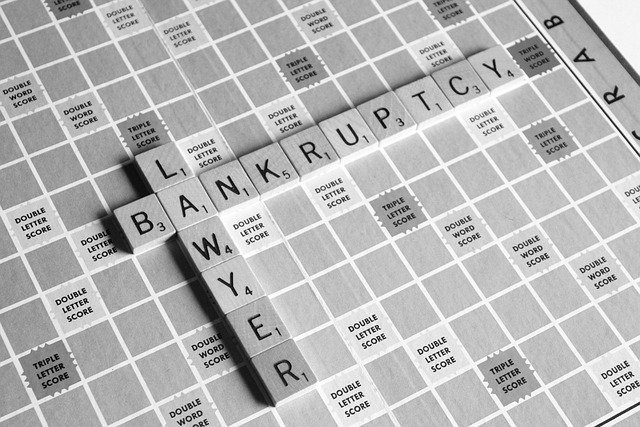If you’re struggling with overwhelming debt and searching for how to file for bankruptcy near me, you’re not alone. In 2025, thousands of Americans are seeking local legal solutions to reset their financial lives. Bankruptcy offers a structured, court-supervised path to discharge or reorganize debt, providing protection from creditors and a chance at a fresh start. Whether you’re considering Chapter 7, Chapter 13, or another form of bankruptcy, this guide will walk you through every important detail, from eligibility to finding a local attorney.
Understanding Bankruptcy: What It Means
Bankruptcy is a federal legal process that allows individuals and businesses to eliminate or repay debts under the protection of the U.S. Bankruptcy Court. When you file for bankruptcy, you may be able to:
- Stop creditor harassment and wage garnishment
- Delay or prevent foreclosure and repossession
- Eliminate or reorganize unsecured debts like credit card balances and medical bills
- Get a fresh financial start under legal supervision
Each type of bankruptcy has its own rules, benefits, and eligibility criteria.
Types of Bankruptcy and Which One You Should File
Chapter 7 Bankruptcy
- Best for: People with limited income and high unsecured debt
- Also known as: “Liquidation bankruptcy”
- Key features:
- Quick process: usually 3–6 months
- Most unsecured debts are eliminated
- May involve selling non-exempt assets
- You must pass a means test to qualify
Chapter 13 Bankruptcy
- Best for: People with steady income who want to keep their property
- Also known as: “Wage earner’s plan”
- Key features:
- Debts are reorganized into a 3–5 year payment plan
- Stops foreclosure and allows you to catch up on mortgage payments
- More flexible than Chapter 7 regarding asset retention
- No need to pass a means test, but income requirements apply
Chapter 11 Bankruptcy
- Best for: Businesses or high-income individuals with complex debts
- Key features:
- Allows operations to continue while debts are restructured
- Requires detailed reorganization plans
- Costly and complex
- Rarely used by average consumers
Comparison Table: Which Bankruptcy Is Right for You?
| Feature | Chapter 7 | Chapter 13 | Chapter 11 |
|---|---|---|---|
| Filing Eligibility | Must pass means test | Regular income required | High debt or business owner |
| Asset Protection | Limited (non-exempt sold) | Can retain most assets | Custom restructuring |
| Timeline | 3–6 months | 3–5 years | Varies (often 1–2 years) |
| Discharges Debt? | Yes (most unsecured debts) | Partial repayment + discharge | Typically reorganized |
| Filing Fee (approx.) | $338 | $313 | $1,717+ |
Steps to File for Bankruptcy Near You
Filing for bankruptcy isn’t something to do hastily. Here’s a step-by-step process for how to begin:
1. Complete a Credit Counseling Course
You must take a government-approved credit counseling course within 180 days before filing. This ensures you’re aware of non-bankruptcy alternatives.
2. Gather Necessary Documents
You’ll need to provide:
- Pay stubs and tax returns
- Bank statements and loan documents
- A list of all creditors and amounts owed
- Monthly living expenses
3. Determine Eligibility
Use the means test to check if you qualify for Chapter 7. If not, you may still file under Chapter 13.
4. Choose the Right Bankruptcy Chapter
Select Chapter 7 or 13 based on your income, asset protection needs, and financial goals.
5. File a Petition with Your Local Bankruptcy Court
You’ll submit:
- Bankruptcy petition
- Schedules of assets, liabilities, income, and expenses
- Statement of financial affairs
Find your local court on uscourts.gov.
6. Pay the Filing Fee
As of 2025:
- Chapter 7: $338
- Chapter 13: $313
Fee waivers or payment plans may be available based on income.
7. Attend the 341 Meeting
Also called the “meeting of creditors,” this is where the court-appointed trustee reviews your case. Creditors can also ask questions, but they rarely attend.
8. Complete a Debtor Education Course
Before your debts can be discharged, you must complete a second course on financial management.
9. Receive Discharge
If approved, your debts will be discharged (Chapter 7) or you’ll begin your payment plan (Chapter 13).
Finding a Bankruptcy Attorney Near You
It’s highly recommended to work with a local bankruptcy attorney to avoid common filing errors and ensure you meet your state’s exemption laws. A good lawyer will:
- Help you decide which chapter to file under
- Represent you during court proceedings
- Maximize your exemptions
- Negotiate with creditors when needed
How to Find One
- Visit our Legal Help page on AssuredPolicy.com for location-specific recommendations.
- Check the National Association of Consumer Bankruptcy Attorneys: nacba.org
- Use the U.S. Courts Attorney Finder
Pros and Cons of Filing for Bankruptcy
Pros:
- Stops collection calls and wage garnishment
- Discharges or reorganizes unmanageable debt
- Offers legal protection from creditors
- May improve credit score in the long run
Cons:
- Credit score drops temporarily
- Stays on your credit report (7 years for Chapter 13, 10 for Chapter 7)
- Public record
- Does not eliminate all debts (e.g., student loans, child support)
FAQs: File for Bankruptcy Near Me
Is it free to file for bankruptcy?
No. Filing requires a court fee, but low-income filers may qualify for waivers or payment plans.
How do I know which chapter is right for me?
Use a means test or consult a bankruptcy attorney. Chapter 7 is faster but stricter on income; Chapter 13 is slower but more flexible.
Will I lose my home or car?
Not necessarily. Most filers keep essential assets, especially under Chapter 13 or if assets are within exemption limits.
Can I file for bankruptcy more than once?
Yes, but there are time limits:
- 8 years between Chapter 7 filings
- 2 years between Chapter 13 filings
Alternatives to Bankruptcy
Before you decide to file, consider these non-bankruptcy options:
- Debt consolidation loans
- Debt settlement programs
- Negotiating directly with creditors
- Non-profit credit counseling
These alternatives don’t offer the legal protection of bankruptcy, but they may suit some financial situations better.
Final Thoughts
If you’re considering how to file for bankruptcy near me, understanding the process, eligibility, and long-term consequences is essential. Bankruptcy is a powerful legal tool for those buried in debt, but it’s not a one-size-fits-all solution. The right approach depends on your assets, income, and goals. If you’re unsure, consult a local bankruptcy attorney who can evaluate your situation and guide you through the next steps.




nyua2b
There may be noticeably a bundle to learn about this. I assume you made sure nice factors in options also.
hey there and thank you for your information – I have certainly picked up something new from right here. I did however expertise several technical issues using this website, as I experienced to reload the web site many times previous to I could get it to load properly. I had been wondering if your hosting is OK? Not that I’m complaining, but sluggish loading instances times will sometimes affect your placement in google and can damage your quality score if ads and marketing with Adwords. Anyway I am adding this RSS to my e-mail and could look out for a lot more of your respective interesting content. Make sure you update this again very soon..
You made some first rate factors there. I appeared on the internet for the difficulty and found most people will go along with together with your website.
Thankyou for helping out, wonderful info .
I happen to be commenting to let you understand of the remarkable discovery my girl undergone visiting your blog. She mastered such a lot of pieces, including what it’s like to possess a great giving character to have the others easily know just exactly certain grueling topics. You truly exceeded our own desires. I appreciate you for producing such interesting, healthy, edifying not to mention cool thoughts on your topic to Sandra.
Heya! I’m at work browsing your blog from my new iphone 3gs! Just wanted to say I love reading your blog and look forward to all your posts! Keep up the excellent work!
Hi there! I’m at work surfing around your blog from my new iphone 4! Just wanted to say I love reading your blog and look forward to all your posts! Keep up the great work!
Very interesting subject, thanks for posting. “I am convinced that life in a physical body is meant to be an ecstatic experience.” by Shakti Gawain.
It?¦s actually a great and helpful piece of info. I?¦m glad that you simply shared this helpful information with us. Please stay us up to date like this. Thank you for sharing.
I couldn’t resist commenting
Hello, you used to write fantastic, but the last several posts have been kinda boring?K I miss your great writings. Past few posts are just a little out of track! come on!
I’ve recently started a website, the info you provide on this web site has helped me tremendously. Thank you for all of your time & work.
certainly like your web site however you have to test the spelling on quite a few of your posts. Several of them are rife with spelling problems and I find it very troublesome to tell the truth then again I¦ll definitely come back again.
I don’t think the title of your article matches the content lol. Just kidding, mainly because I had some doubts after reading the article. https://www.binance.info/pt-PT/register?ref=KDN7HDOR
Keep working ,splendid job!
Nice breakdown
My programmer is trying to persuade me to move to .net from PHP. I have always disliked the idea because of the expenses. But he’s tryiong none the less. I’ve been using Movable-type on several websites for about a year and am concerned about switching to another platform. I have heard fantastic things about blogengine.net. Is there a way I can import all my wordpress content into it? Any help would be greatly appreciated!
Hello, i read your blog occasionally and i own a similar one and i was just curious if you get a lot of spam remarks? If so how do you prevent it, any plugin or anything you can advise? I get so much lately it’s driving me mad so any help is very much appreciated.
Great write-up, I?¦m regular visitor of one?¦s website, maintain up the excellent operate, and It’s going to be a regular visitor for a long time.
With havin so much content do you ever run into any problems of plagorism or copyright violation? My website has a lot of exclusive content I’ve either written myself or outsourced but it seems a lot of it is popping it up all over the web without my agreement. Do you know any techniques to help protect against content from being stolen? I’d definitely appreciate it.
I gotta bookmark this internet site it seems handy handy
I am really enjoying the theme/design of your weblog. Do you ever run into any web browser compatibility problems? A small number of my blog readers have complained about my website not working correctly in Explorer but looks great in Safari. Do you have any recommendations to help fix this issue?
Thank you for your sharing. I am worried that I lack creative ideas. It is your article that makes me full of hope. Thank you. But, I have a question, can you help me?